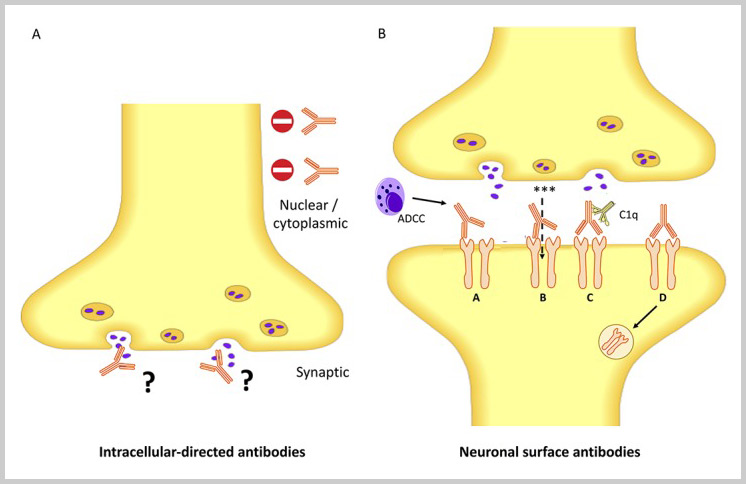Clinical Features, Underlying Immunology, and Treatment of Autoantibody-Mediated Movement Disorders
Identifying T cell and B cell involvement in autoantibody-mediated movement disorders can assist in targeting treatment.

This article 1 outlines the role of T cells and B cells in the generation of autoantibodies and reflects on how these may impact prognosis and direct therapy in autoantibody-mediated movement disorders. The authors conclude that the detection of neuronal autoantibodies in autoantibody-mediated movement disorders can help guide the diagnostic process and initiate proper, individualized therapy.
Highlights:
- The upscaling of immunotherapies to second line treatments such as cyclophosphamide and rituximab should be instigated in those refractory to first line therapies. The titration should be quicker in patients whose disease is more severe.
- Methods to determine the degree and nature of T and B cell involvement may help predict the value of cell specific therapies.
- The recent implication of an almost universal HLA-DRB1 allele strongly implicates a role for T cells in disease pathogenesis (when discussing LGI1 antibodies).
- Identifying the autoantibody–producing cells has important implications for future individualized therapies, because through the B cell lineage there are different sets of expressed surface markers. These markers change as originally naïve B cells encounter T cell help and antigen, and differentiate into memory B cells.
What is the Cunningham Panel™ of tests?
The Cunningham Panel™ is a blood test which measures the levels of circulating autoantibodies associated with certain neurologic and psychiatric symptoms. Elevated levels indicate that symptoms may be due to an infection-driven autoimmune dysfunction.
Schedule Your Personal Phone Consultation
Learn more about how the Cunningham Panel™ of tests can assist you in diagnosing treatable autoimmune encephalopathies characterized by abnormal neuropsychiatric behaviors. Schedule your personal phone consultation with a Moleculera Labs clinical staff member by completing the form below.
- Damato, V. , Balint, B. , Kienzler, A. and Irani, S. R. (2018), The clinical features, underlying immunology, and treatment of autoantibody‐mediated movement disorders. Mov Disord., 33: 1376-1389. doi:10.1002/mds.27446








